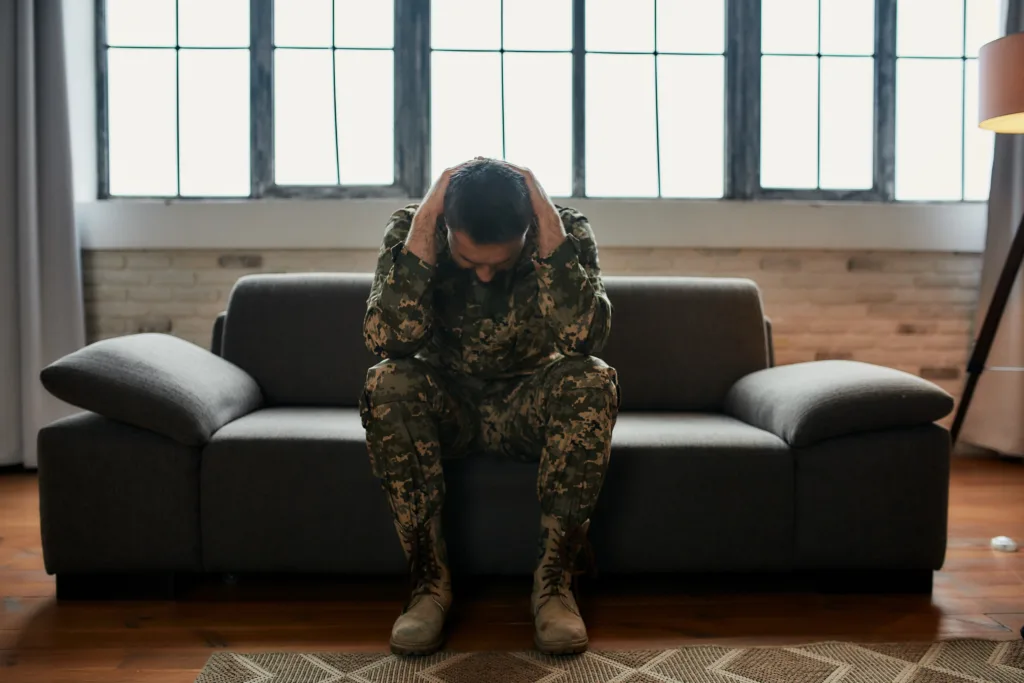Substance use and mental health issues can be devastating for military service members, veterans and their families. It’s never easy to watch someone you love suffer. Well-meaning relatives and friends may wish to step in and help, but find themselves at a loss for ways to be supportive.
Military families often face unique challenges related to addiction and mental illness. Veterans might try to hide their struggles from their families, believing that they need to put painful memories behind them, remain stoic or put on a brave face. They may avoid opening up about what they’re feeling because their families won’t understand what they’ve experienced, becoming distant and withdrawn. Symptoms of post-traumatic stress disorder (PTSD) that veterans commonly face, such as hypervigilance and aggression, can also lead to family conflict.
If you know or suspect that a veteran in your life is abusing substances
If you know or suspect that a veteran in your life is abusing substances, you need to know that:
Additionally, self-care is just as important for the support systems of veterans struggling with behavioral health to help them avoid burnout or turning to unhealthy coping mechanisms. Family members are at increased risk of substance use to cope with being apart from their loved one during deployment, the stress of moving to a new place or anxiety around whether their loved one will return home safe.
What if My Loved One Wants to Leave Treatment Early?
Pursuing recovery from addiction is a noble and courageous effort. The beginning stages of recovery can also be incredibly challenging physically, mentally and emotionally, which is why many individuals who enter treatment consider leaving early. Leaving a substance use treatment program before the established discharge date and against the recommendations of the clinical and medical teams is often referred to as leaving against medical advice, or AMA.
An educated and aligned support system is vital for veterans completing a detox or inpatient treatment program. Pyramid Military Therapy & Recovery Programs is committed to teaching you how to best help, encourage and support your loved one so that they complete their full treatment stay.
Excuses for leaving treatment AMA
Your loved one might make the following excuses for wanting to leave treatment AMA:
- This isn’t the place for me.
- I’m not here for me.
- Family wants me home.
- I can’t do it.
- It’s too chaotic here.
- I got all I came here to get.
- I don’t want help.
- I’m not ready.
- You have to want to get help.
- I haven’t hit rock bottom.
- I don’t think I’m that bad.
- I have to take care of […], then I’ll come back.
Reasons your loved one might give for wanting to leave treatment early:
- They want to fix relationships
- They have been told “no”
- Negative peer influence
- Family discord or dysfunction
- Overwhelming emotional turmoil and feelings of guilt, shame and anger
- Lack of support system, or a support system who favors them leaving early
- Poor communication with support system
When supporting a veteran in recovery from substance use disorders, sometimes the most loving thing you can do is say “no” to letting them come home early. No matter how convincing your loved one’s argument seems or how emphatic they are about wanting to leave, it’s important to encourage them to stay the course until their treatment team determines that they’ve made enough progress in recovery to take the next step. Not only do you want your loved one to get well, you want them to stay well. Research shows that a residential treatment stay of at least 30 days leads to stronger long-term recovery outcomes.
Family support is crucial for veterans in recovery
At Pyramid Military Therapy & Recovery Programs, we understand the importance of family involvement in recovery. Our family therapy programming makes recovery a team effort. By educating families about the unique mental health challenges veterans face and providing opportunities to strengthen communication skills, our ultimate goal is to help families affected by substance use begin to reconnect and heal.




